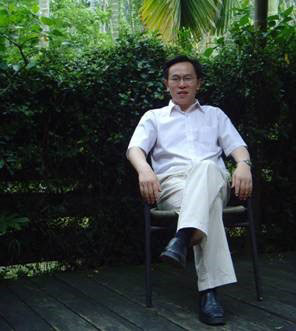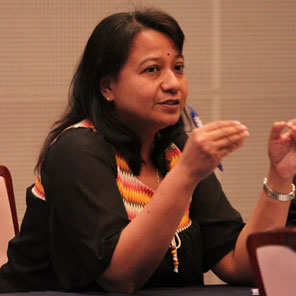Plenary Speakers
The Asia-Pacific Network for Moral Education
The 11th Annual Conference
21st - 24th April 2017
The Central China Normal University, China
Establishing values-based learning environments: A whole-school approach to moral education
Professor DU Shizhong
Central China Normal University, China
 |
National morality influencing the quality of Education
The article focuses on the ability of a country to have ethical behavior that must be limited by a moral philosophy. Because a nation’s behavior can deteriorate morally, and education is unavoidably influenced by the national moral condition, school systems and state institutions need to maintain an ideal moral standard in the face of this challenge toward our children and our common future. Through moral education, school systems create the future morality of a nation by ideological reproduction. Therefore, pedagogy needs to be vigilantly aware of any national moral deterioration. It also means that the ultimate concern of education is to promote the betterment of society. As educators, no matter how the country changes, we must find new ways to develop children’s conscience toward acting with justice.
Professor Du Shizhong was Deputy Dean of the School of Education, CCNU for more than ten years, and he does his best to promote the students’ development. In 2013, he established Institute for Moral Education, Central China Normal University and became the director. As a senior research fellow, he went to the University of Warwick and Fordham University for studying visits. He is the first scholar in China to come up with the Institution for Moral Education and published “Institutional Reform and School Moral Education”, “System Virtue and the Institution for Moral Education” and so on. Based on these viewpoints, he demonstrates some other points like national morality is moral education, national quality decides education quality, to broaden the connotation and extension of moral education.
|
Vishalache BALAKRISHNAN, PhD
University of Malaya, Malaysia, and
University of Waikato, New Zealand
 |
Moral Education from a Multicultural Perspective
Traditional schooling found throughout Asia tends to focus on enunciating principles and studying the rule of law in particular nations. Dr Balakrishnan argues that to ensure holistic education, education philosophies should acknowledge the diversity of cultural groups within a state or nation and focus on “moral education in action” from a multicultural perspective. A danger to traditional moral education is that students view it as irrelevant and lose interest, becoming skeptical over the perceived mismatch between what is prescribed and the reality of what is happening in their countries. Students should be able to state their opinions and openly discuss controversial issues and culture in classes that include individuals from different cultures, religions, genders and beliefs. Using several Asia-Pacific countries as case studies, Dr Balakrishnan’s presentation analyzes the opportunities and challenges of moral education from a multicultural perspective.
Vishalache Balakrishnan is a senior lecturer at the University of Malaya, Malaysia. She was a secondary school teacher for 14 years before becoming a lecturer in 2002 at the University of Malaya. She is multicultural, multireligious and multilingual. This background led her to pursue her career in moral education, and she is actively involved in teaching and the training of educators. She writes academic books, journal articles and chapters in books for moral education, civics and citizenship, and multicultural education. Visha has received an appointment as a Research Associate in the Wilf Malcolm Institute of Educational Research, New Zealand which enables her to use her expertise and goodwill towards the University of Waikato in taking on the research role.
|



